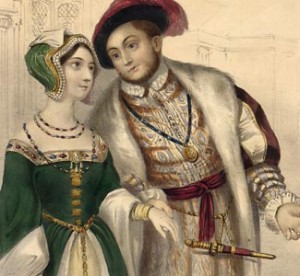 On 1st May 1536, King Henry VIII and Queen Anne Boleyn attended the annual May Day joust at Greenwich Palace.
On 1st May 1536, King Henry VIII and Queen Anne Boleyn attended the annual May Day joust at Greenwich Palace.
Although court musician Mark Smeaton had been apprehended the previous day and the king and queen’s forthcoming trip to Calais had been cancelled, everything seemed normal as the jousting began. The queen’s brother, George Boleyn, Lord Rochford, led the challengers and Sir Henry Norris, the king’s groom of the stool, led the defenders. It looked set to be an entertaining day…